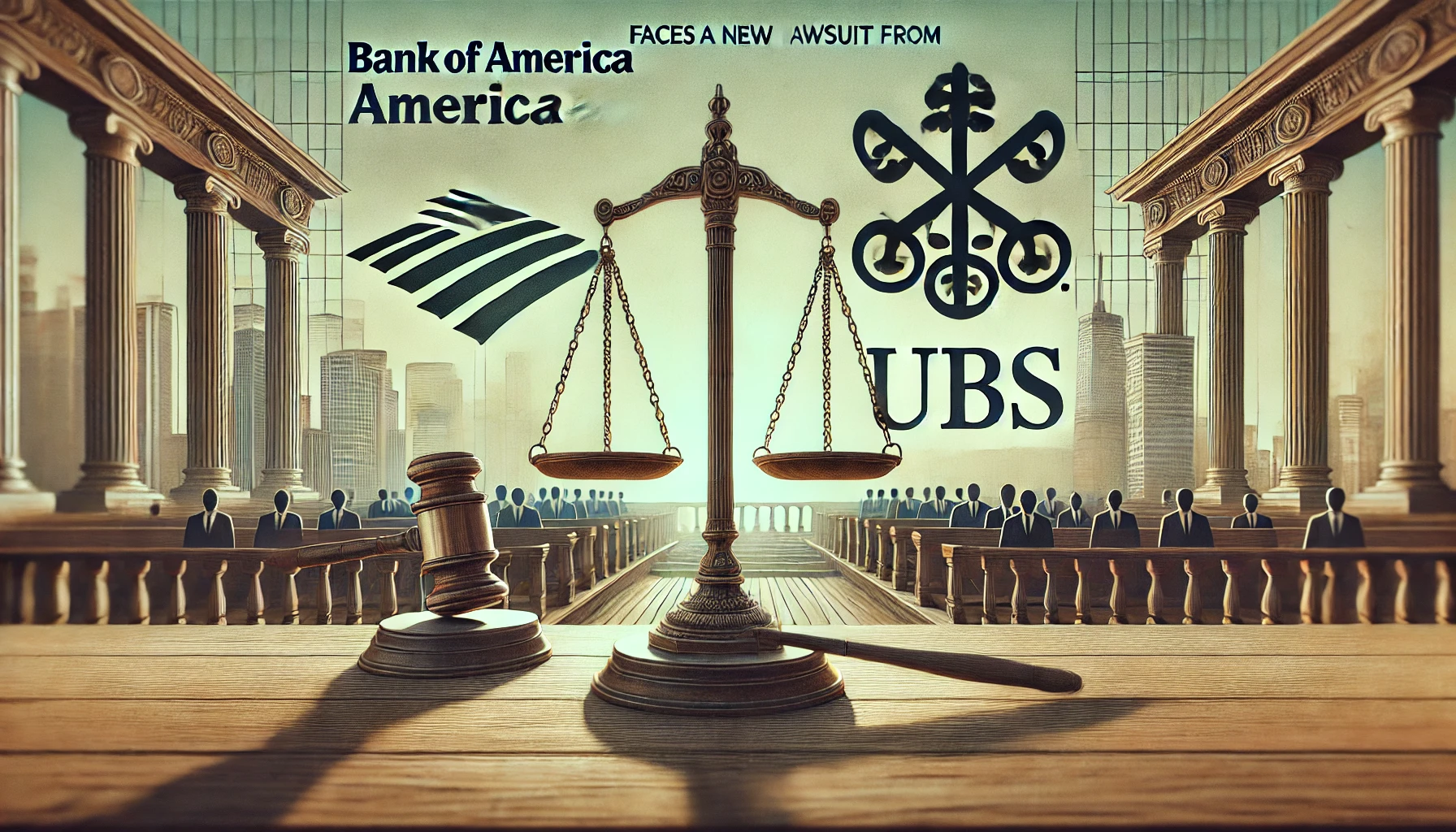Bank of America Faces a New Lawsuit from UBS: Exploring the Legal Implications

Bank of America faces a new lawsuit from UBS for $200 million in a legal dispute tied to the 2008 financial crisis. The lawsuit revolves around an indemnification agreement between UBS and Countrywide Financial, a major mortgage lender that Bank of America acquired in 2008. UBS claims that Countrywide had agreed to cover legal costs related to faulty and fraudulent mortgages issued before the crisis, but Bank of America has refused to honor these obligations.
UBS’s allegations stem from its own legal settlements in 2013 and 2016, where it paid millions to resolve claims over the sale of mortgage-backed securities containing risky or poorly underwritten loans. UBS argues that it is entitled to reimbursement under the indemnification terms and is now pursuing legal action to recover those costs.
This lawsuit highlights the ongoing impact of the 2008 financial crisis, which exposed widespread issues in the housing and financial markets. It also underscores the risks involved in corporate acquisitions like Bank of America’s purchase of Countrywide Financial, where liabilities can persist for years after the deal. The outcome of this case could set a precedent for how similar indemnification agreements are interpreted and enforced in the financial sector.
Key Players in the Dispute
1. Bank of America
As a leading American bank, Bank of America operates globally, offering a wide range of financial services. In 2008, it acquired Countrywide Financial, a mortgage lender heavily involved in risky lending practices. While the acquisition was meant to expand its mortgage business, it also brought significant legal and financial challenges.
2. UBS
UBS, based in Switzerland, is a prominent global financial institution with expertise in wealth management, investment banking, and other financial services. The lawsuit centers on costs UBS incurred in dealing with claims tied to poorly underwritten mortgage-backed securities sold during the housing boom.
The Core Issue
The lawsuit focuses on indemnification—an agreement that one party will cover certain costs or liabilities incurred by another. UBS claims that Countrywide Financial agreed to indemnify it against claims related to faulty or fraudulent mortgages. Since Bank of America acquired Countrywide in 2008, UBS believes the bank is now responsible for these obligations. However, Bank of America has allegedly refused to reimburse UBS for legal costs related to settlements made in 2013 and 2016.
Historical Context
To understand the lawsuit, we must revisit the events leading to the 2008 financial crisis:
- Countrywide Financial’s Role: Countrywide was one of the largest mortgage lenders in the U.S. and was infamous for issuing subprime loans—high-risk mortgages often given to borrowers with poor credit.
- Impact of Subprime Loans: These loans contributed significantly to the housing market collapse and the subsequent global financial crisis.
- Bank of America’s Acquisition: In 2008, Bank of America purchased Countrywide for $4 billion. While the deal was intended to strengthen its mortgage business, it also exposed the bank to lawsuits and financial liabilities stemming from Countrywide’s practices.
UBS’s Allegations
UBS has already settled claims tied to faulty mortgage-backed securities:
- Legal Settlements: UBS resolved these claims in 2013 and 2016, spending substantial amounts to settle accusations of selling risky securities to investors.
- Indemnification Agreement: UBS argues that it had an agreement with Countrywide to cover such costs. By extension, it holds Bank of America accountable for these obligations as Countrywide’s successor.
Bank of America’s Perspective
Bank of America has not publicly disclosed its legal strategy, but possible defenses include:
- Challenging the Agreement: Bank of America may argue that the indemnification terms do not apply to UBS’s settlements.
- Disputing Liability: The bank might claim that the legal costs UBS incurred were unrelated to the agreement with Countrywide.
- Protecting Its Position: Admitting liability could set a precedent, inviting similar claims from other institutions, further increasing its financial burden.
Financial and Legal Implications
1. For Bank of America:
- If UBS wins the lawsuit, Bank of America could face a $200 million payout, along with reputational damage.
- A loss could also lead to more claims from other parties tied to Countrywide’s activities.
2. For UBS:
- A successful lawsuit would help UBS recover significant legal costs, bolstering its financial position.
- It would set a precedent for enforcing indemnification agreements in similar disputes.
3. For the Financial Industry:
- This case highlights the importance of clarity in corporate agreements, especially indemnification clauses.
- It serves as a reminder of how the 2008 crisis continues to affect financial institutions.
Broader Industry Context
The lawsuit reflects broader trends and lessons in the financial sector:
- Long-Term Impact of the 2008 Crisis: Even years later, institutions like Bank of America and UBS are dealing with liabilities from that period.
- Risks in Corporate Acquisitions: Acquiring troubled companies, as Bank of America did with Countrywide, can result in significant unforeseen liabilities.
- Importance of Due Diligence: This case emphasizes the need for thorough risk evaluation in mergers and acquisitions.
Potential Outcomes
Several scenarios could result from this legal battle:
- Settlement: UBS and Bank of America might negotiate a settlement to avoid prolonged litigation.
- Court Ruling in UBS’s Favor: This would compel Bank of America to pay $200 million and could open the door for more claims.
- Court Ruling in Bank of America’s Favor: UBS would absorb its legal costs, potentially discouraging similar lawsuits in the future.
Timeline of Events
- Pre-2008: Countrywide Financial issues high-risk loans, becoming a key player in the housing bubble.
- 2008: Bank of America acquires Countrywide, inheriting its assets and liabilities.
- 2013 and 2016: UBS settles claims over faulty mortgage-backed securities, incurring substantial legal costs.
- 2024: UBS files a $200 million lawsuit against Bank of America for indemnification.
Conclusion
The lawsuit between UBS and Bank of America is more than a financial dispute—it highlights the ongoing consequences of the 2008 financial crisis and the complexities of corporate mergers and acquisitions. Bank of America faces a new lawsuit from UBS, underscoring the risks of acquiring troubled companies like Countrywide Financial. For UBS, it is a fight for accountability and financial recovery. The outcome of this case will not only impact these two institutions but could also shape how indemnification clauses are interpreted in future corporate agreements. Regardless of the result, this lawsuit serves as a powerful reminder of the need for transparency, diligence, and accountability in the financial industry.
FAQs
1. Why is UBS suing Bank of America?
UBS claims Bank of America owes $200 million under an indemnification agreement tied to risky mortgages issued by Countrywide Financial before 2008.
2. What is the basis of UBS’s legal claim?
UBS argues that Countrywide, acquired by Bank of America, agreed to cover legal costs related to faulty mortgage-backed securities.
3. How does this lawsuit relate to the 2008 financial crisis?
The lawsuit stems from liabilities linked to subprime loans and fraudulent mortgage practices that fueled the 2008 housing collapse.
4. What are the potential outcomes of this lawsuit?
Bank of America may settle, face a court judgment in favor of UBS, or successfully defend itself, depending on the legal interpretation.
5. How could this case impact the financial industry?
It highlights the risks of legacy acquisitions and underscores the importance of clear indemnification clauses in corporate agreements.
Recommended Article:
Dominion Founder Deposition Lindell Lawsuit: Impact on Election Systems
Lebanon Mesothelioma Legal Questions: Seeking Justice and Compensation
Sierra Mist Lawsuit: From Trademark Disputes to Transparency
Prince Health Group LLC Florida Lawsuit: Impacts on Patients and Healthcare



































































































































































































































































































































































































































































































































































